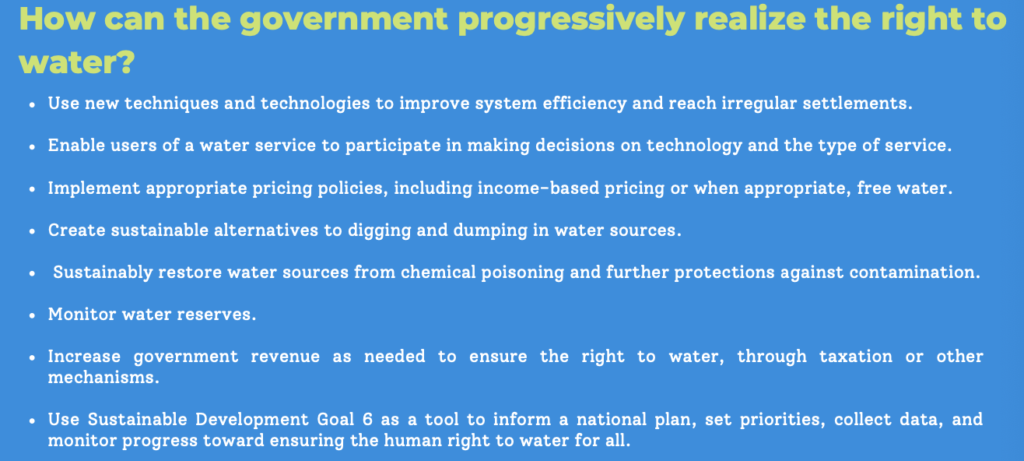For World Water Day, our Expert Committee Chair, Martha Davis from the Law Department of Northeastern University, co-released two documents highlighting the importance of the human right to water. The documents were released in partnership with the School of Law at Miami University and the Indigenous Safe Housing Center. The first document is an overview of the human right to water and it’s legal basis. The second document is a study of the indigenous peoples’ right to water.
View the complete version of the documents here: General HRW and Indigenous peoples’ HRW.
Legal basis for the right to water
The human right to water entails that everyone should have access to “sufficient, safe, acceptable, physically accessible, and affordable water for personal and domestic use”. The human right to water stems from the Universal Declaration of Human Rights, and other resolutions that protect peoples’ right to water and that especially protects vulnerable groups from any type of discrimination that prevents them from accessing this resource.

Furthermore, policies and legislation need to work towards guaranteeing the availability, accessibility, quality, sustainability, and acceptability of water. These components benchmark the right and hold the specific country or local government to the minimum standards.
Indigenous Peoples’ Human Right to Water

Based on the right to water components, the document explains the different human right violations that the indigenous peoples suffer regarding water. Climate change and decision-making at a national level can be one of the main factors that affect the accessibility to water. Historically, “indigenous peoples are insufficiently consulted on policies and projects affecting the right to water”, therefore, authorities have neglected the needs of these communities. In contrast, the sustainable practices of indigenous peoples could ideally help fight the water issues around the world.

